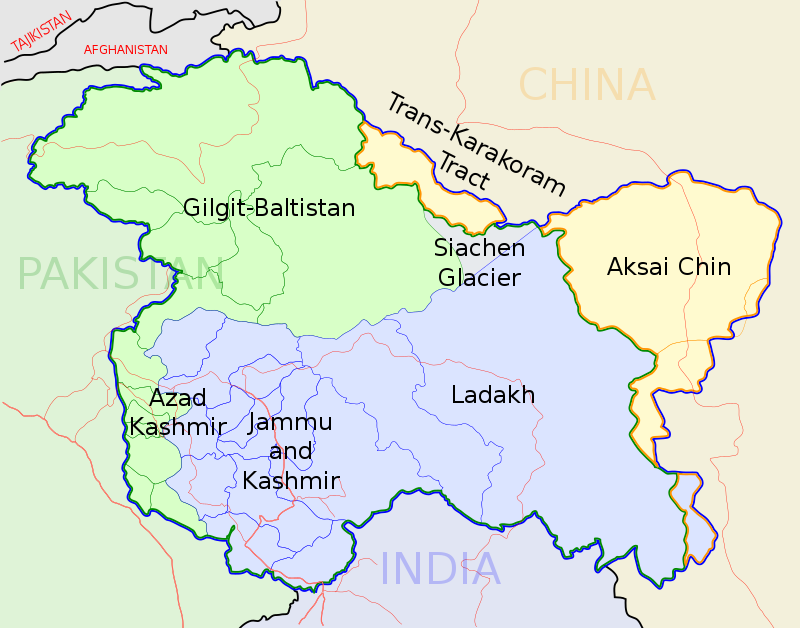
IF YOU WANT PROOF JUST WATCH VISHAL KAUSHAL FILM URI, THE SURGICAL STRIKE

| Date | 28–29 September 2016 (1 day) |
|---|---|
| Location |
Line of Control
|
| Result |
WHY WAS THE SURGICAL STRIKE DONE BY INDIA?
On 18 September, a a fedayeen attack was made by four armed militants on an army base near the town of Uri. Nineteen Indian Army soldiers were killed. India accused Jaish-e-Muhammad, a Pakistan-based terrorist organisation.Having come after similar fidayeen attacks in Gurdaspur and Pathankot, the Uri attack gave rise to high degree of concern in India. The following day, the Indian army said that it had displayed considerable restraint in the wake of the attacks, but it reserved the right to respond "at the time and place of our own choosing.”.
The Guardian said that Indian patience had run out due to Pakistan's inaction in curbing the activities of terrorist organisations such as Lashkar-e-Taiba and Jaish-e-Mohammad. On 21 September, India summoned the Pakistan High Commission Abdul Bassit and gave a protest letter detailing the involvement of a terrorist group based in Pakistan.Pakistan later said that India had provided no evidence that the Uri attack was launched from Pakistan. Pakistan's defence minister suggested that India had carried out the Uri attack to deflect attention from the popular protests in Jammu and Kashmir.The Hindustan Times reported that the minister's comments made up an "inflection point", after which India decided to respond militarily.
Indian officials said that the cross-border infiltration across the Line of Control had surged since the unrest began in Kashmir. The persons crossing the border showed evidence of military training. According to a government source close to Home Minister Rajnath Singh, a meeting of the Cabinet Committee on Security was held on 24 September, at which "broad details of targeting terrorists" were discussed
WHEN AND HOW SURGICAL STRIKE WAS DONE BY INDIA
On 29 September, eleven days after the Uri attack, the Indian Army conducted surgical strikes against suspected militants in Pakistani-administered Kashmir. Lt Gen Ranbir Singh, Indian Director General of Military Operations (DGMO), said that it had received "very credible and specific information" about "terrorist teams" who were preparing to "carry out infiltration and conduct terrorist strikes inside Jammu and Kashmir and in various metros in other states". The Indian action was meant to pre-empt their infiltration. India presented its operation as preemptive self-defence against terrorism, striking against terrorist infrastructure along with "those who are trying to support them." Columnist Ankit Panda thought the latter included Pakistani soldiers or the elements of Pakistani state.On 30 September, Indian minister for information and broadcasting Rajyavardhan Singh Rathore said that there had been no aerial strikes and that the operation had been conducted "on the ground".
Ranbir Singh said that his Pakistani counterpart had been informed.The Pakistani military said the DGMO communications discussed only the cross-border firing, which was part of the existing rules of engagement.
Pakistan denied that such surgical strikes occurred. The Inter-Services Public Relationssaid that there had been only "cross border firing". But, Pakistan Prime Minister Nawaz Sharif condemned the "unprovoked and naked aggression of Indian forces", and said that Pakistani military was capable of thwarting any attacks by India.
UN Secretary General Ban Ki-Moon said that the UN Observer Group in Pakistani Kashmir did not directly observe any "firing across the Line of Control" relating to the incident. The Indian envoy at UN Syed Akbaruddin dismissed this statement, saying "facts on the ground do not change whether somebody acknowledges or not."
Analyst Sandeep Singh, writing in The Diplomat, said that the operation is better characterised as a cross-border raid because "surgical strikes" involve striking deep into the enemy territory and typically using air power.
IF YOU LIKE THIS BLOG JUST SHARE AND LEAVE A COMMENT
|
/cdn.vox-cdn.com/uploads/chorus_image/image/63115088/1131936202.jpg.1551058168.jpg)
No comments:
Post a Comment